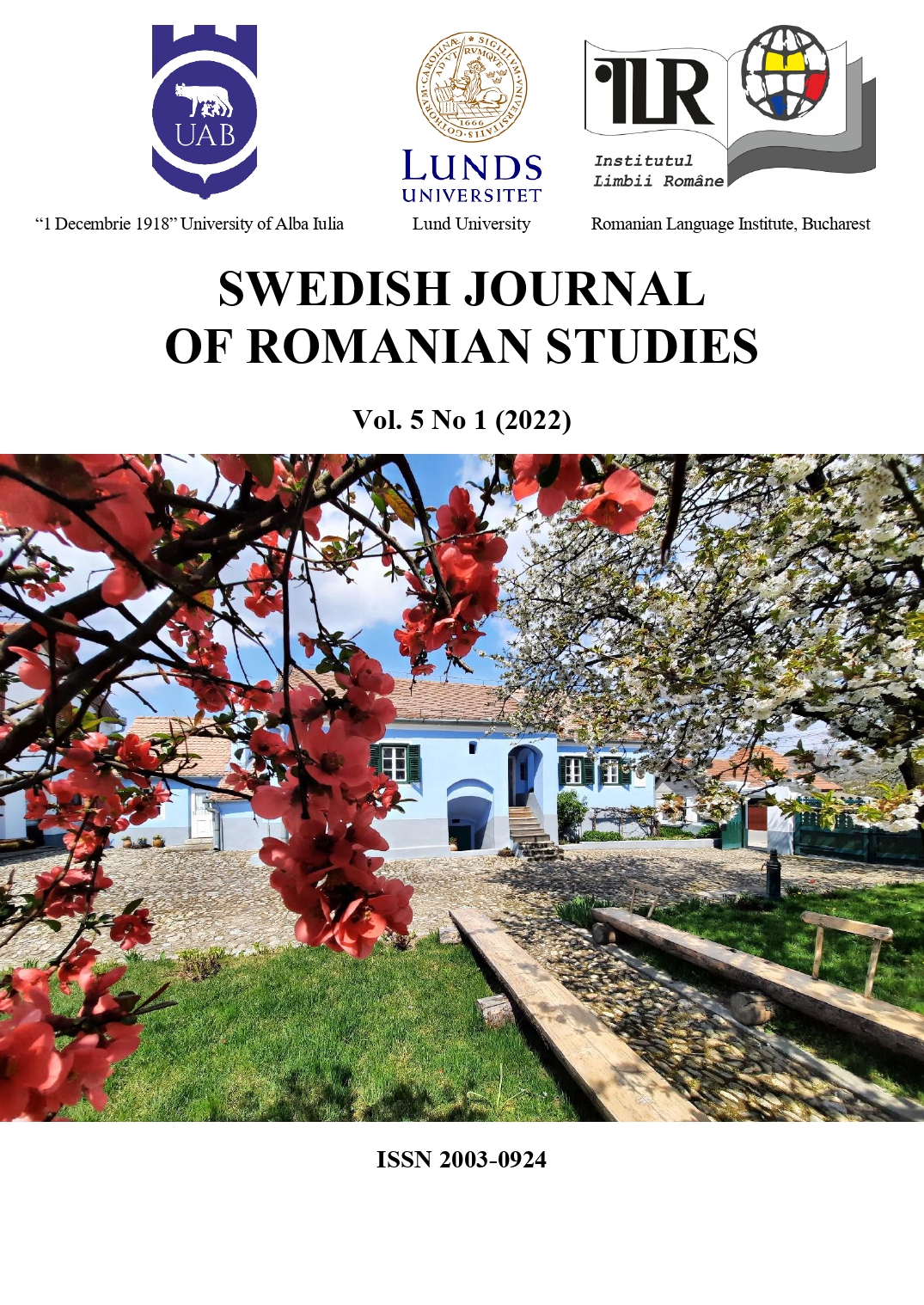Drama unei familii țărănești din Ardeal
The tragedy of a Transylvanian traditional family
DOI:
https://doi.org/10.35824/sjrs.v5i1.23929Keywords:
Lucian Domșa, novel, traditional village, World War I, TransylvaniaAbstract
As the traditional village had gradually faded with time, writing a novel encompassing this subject has become a predicament, yet Lucian Domșa undertook writing about the Transylvanian rural context, revealing his most authentic sense of artistry. Măriuca is a novel portraying the tragic existence of a countryman returning home after World War I. The realities of the traditional village are depicted in the background, for it is the character development, the representation of the profound history of a family, the history of an existence lived according to the old ways of the countryside, all explored under the veil of most authentic vernacular language, that notably constitute the centre of the novel. The typical tragedy of a family from a village in Transylvania is gradually built in the novel, in sync with the space it inhabits, and with the action, also capturing several monographical elements of the Transylvanian village. Although the novel is entitled Măriuca, the main character is Manole a lui Țapu’, however, in virtue of the way the female heroine is composed, through her desire for emancipation, Măriuca becomes the main important character who announces a change of mentality and attitude in the interwar period in the rural environment.
References
Domșa L. (2020). Aneta. Iași: StudIS.
Domșa L. (2022). Măriuca. Iași: StudIS.
Downloads
Published
How to Cite
Issue
Section
License
Copyright (c) 2022 Gabriela Chiciudean

This work is licensed under a Creative Commons Attribution-NonCommercial 4.0 International License.
Authors who publish with this journal agree to the following terms:
a. Authors retain copyright and grant the journal right of first publication with the work simultaneously licensed under a Creative Commons Attribution-NonCommercial 4.0 International License that allows others to share the work with an acknowledgement of the work's authorship and initial publication in this journal.
b. Authors are able to enter into separate, additional contractual arrangements for the non-exclusive distribution of the journal's published version of the work (e.g., post it to an institutional repository or publish it in a book), with an acknowledgement of its initial publication in this journal.
c. Authors are permitted and encouraged to post their work online (e.g., in institutional repositories or on their website) prior to and during the submission process, as it can lead to productive exchanges, as well as earlier and greater citation of published work (See The Effect of Open Access).

